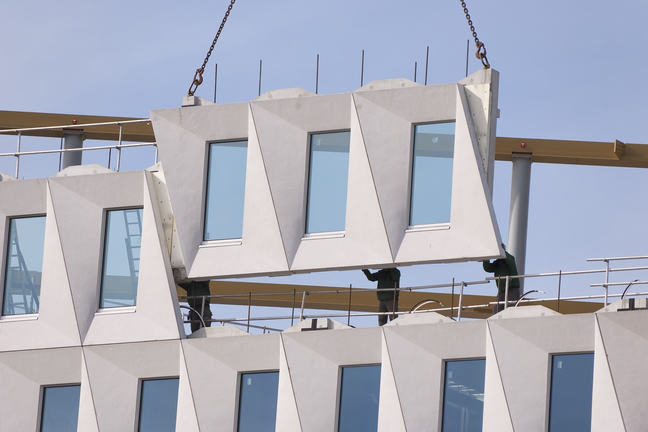MMC cost saving potential...
MMC (Modern Methods of Construction) is a broad ‘umbrella’ acronym that describes a variety of contemporary construction methods and processes including:
Off-site Construction, Modular Construction, Precision Manufactured Construction, Design for Manufacture and Assembly, Pre-Manufactured Value, Digital Construction, Smart Construction.
With these processes are design and construction outputs that assist and aid the enhanced delivery of building projects that include the use of: Panellised Walls/Floors, Bathroom Pods, Utility Pods, Pre-fabricated MEPH Riser components, Balcony modules, Kitchen modules.
Cost Saving Potential
Recent cost estimates suggest that, for medium-size residential schemes, MMC could be 10-20% more cost effective than traditional methods and can reduce the overall programmes by circa. 25% - 50%. Whilst this may be the case, the process of MMC use/implementation provides other considerations to take on board, especially when used in the residential market.
For Housing Associations and Local Authorities, the higher speeds of construction and quality associated with MMC use is of particular interest as more homes can be delivered to reduce affordable housing waiting lists, the impacts of cost inflation, interest payments, long-term maintenance costs and generate more rental income from programme savings. Private Sale developers don’t always need this benefit as they look to time their delivery and sales to maximise their profits, and avoid flooding the open market with over-supply. Private Rental Sale Clients, in the other hand, most definitely do want the added rental income that these programme savings bring.
For other markets serving societal needs such as Schools and Healthcare projects, the same applies as these critical public services can be delivered in less time than with traditional construction methods.
The short construction programmes will often present cost savings associated with Construction Prelims costs (e.g Crane and Plant hire, logistics, Welfare set-ups and labour costs associated) rather than actual unit build & component costs, which are currently transferred to the offsite factory manufacturing process. Recent data suggests prelim savings could be around 10-12%.
MMC Supply Chain
Currently the UK MMC Supply Chain is still in its infancy with regards to number of solution providers available. As this increases, alongside use of digital manufacturing in their construction factories, we should see unit build costs coming down. It should be noted that standardisation of building components from the supply-side and mass uptake from the demand-side is needed for these cost savings to materialise. It’s the economies of scale principles typically associated with product manufacturing that the construction industry needs to adopt. Repetition of standard components such as floor and wall panels, a standard bathroom pod design, MEP Service modules that stack, will positively impact the cost of a project and remove financial challenges often associated with bespoke project solutions.
De-risking Construction through Design for Manufacturing & Assembly (DfMA)
DFMA stands for Design for Manufacture and Assembly. It is the combination of two methodologies; Design for Manufacture, which means the design for ease of manufacture of the parts that will form a product, and Design for Assembly; the design of the product for ease of assembly.
Applied to construction, a well controlled, planned and managed design phase is critical for the benefits of an MMC project to be achieved off and on-site. Design information will need to solidified to a higher detail much earlier than under traditional procurement so factory manufactured components can be programmed into a production line slot and assembled with ease on site. This reduces on-site construction risk which typically results in delays, cost overruns on traditionally built projects. It should be highlighted that currently upfront design costs are typically much higher than traditional build to accommodate this higher level of detail being brought forward / earlier in the process. The benefits by way of cost savings from reduced design errors, clashes and re-work during construction, as well as increased and smoother build programmes should readily justify this upfront spend.
Image Credit: www.futurelearn.com



